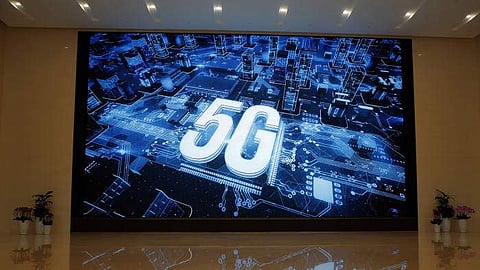

NEW DELHI: A day after Telecom Service Providers (TSPs) urged the government not to provide 5G spectrum directly to private enterprises citing a huge loss to the exchequer and sub-optimal utilisation of this scarce resource, the private enterprises called their concern a "misconception". They claimed it will in fact become an additional source of revenue for the government.
The Broadband India Forum (BIF), which has members like CISCO, Amazon, Microsoft and Intel, said there would be no revenue loss to the government on account of direct spectrum allocation as the private enterprises will purchase the spectrum at a price to be fixed by the government.
"In the present scenario, the majority of the enterprise revenues of TSPs would be through external network services, which comprise voice and data communications. Captive usage in the current situation would only contribute a minor share in processes/applications like robotics and automation, due to challenges in delivering the required SLAs through public networks. Therefore, the speculated loss in revenues for telcos via enterprise services is a misplaced one," BIF said in a statement.
The telecom regulator (Trai) in its recommendations on the 5G spectrum auction suggested the Department of Telecom (DoT) should allow Indian enterprises to build private 5G networks. However, this move was not welcomed by the telecom operators, who urged the government not to allot 5G spectrum directly to private enterprises. Many believe this bone of contention between the Indian telecom operators and Indian enterprises is the reason that the government hasn't come up with a 5G spectrum auction yet.
Cellular Association of India (COAI), which represents all the main private telcos -- Reliance Jio, Bharti Airtel and Vodafone Idea Limited (VIL) -- is of the view that if the government allots 5G spectrum directly to private enterprises, it will cause a huge loss to the exchequer. They have also raised security concerns and mentioned sub-optimal utilisation of this scarce resource.
On the security issue, BIF noted that it has been erroneously claimed that private 5G networks could be exploited by anti-social elements to bypass interception and monitoring of messages, which would be detrimental to national security. They highlighted that the private 5G networks are not connected to external public networks -- there is no connectivity to PSTN or any other PLMN/ISP -- and the spectrum is majorly needed for IoT, Machine-to-Machine (M2M), Robotics, Logistics, etc. "Hence it is not permissible for external communications and the need for lawful monitoring, interceptions and the possibility of threats to national security do not arise at all," said BIF in a statement.
Tech giants like Tata Consultancy Services (TCS) and Tata Communications have shown interest in having a private captive network.